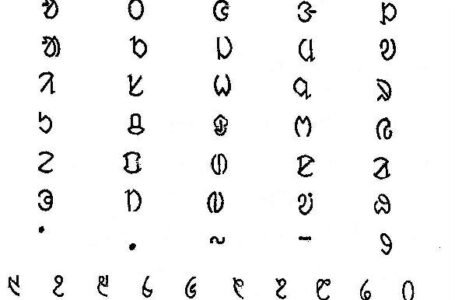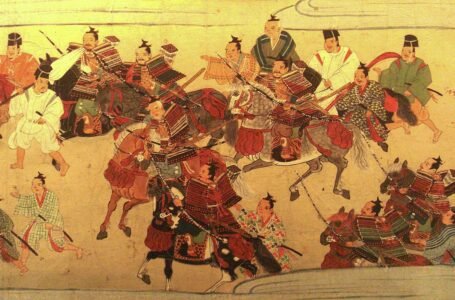Dhanvantari: The Real God of Dhanteras
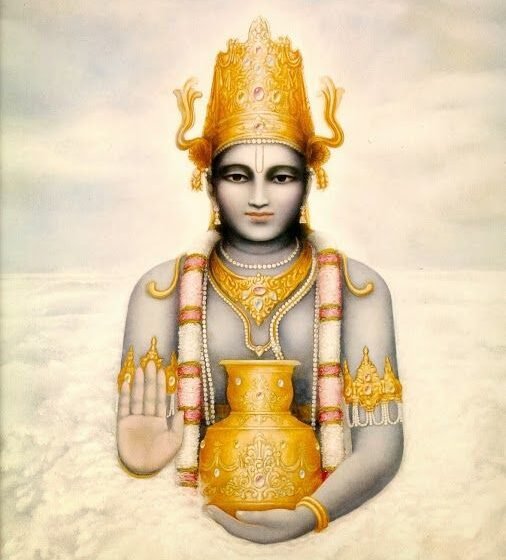
Dhanvantari is the god of Ayurveda and is highly respected in Hindu mythology and Indian culture. He is mostly worshiped during Dhanteras, the festival that marks the beginning of Diwali, prosperity, and good health. Since he is the celestial healer and the god of health and medicine, Dhanvantari manifests the principles of healing and rejuvenation. Dhanteras, the festival honouring him, promotes health, wealth, and the pursuit of knowledge.
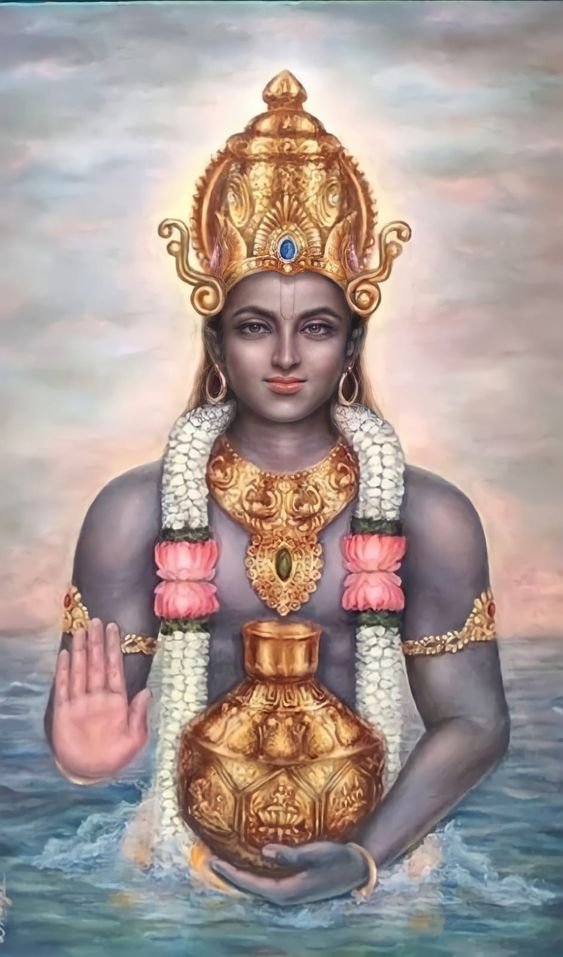
History of Dhanvantari
According to Dhanvantari legends that trace back to ancient manuscripts, the most important manuscript in which Dhanvantari has been mentioned as the God of Ayurvedic Medicine is the Puranas. In Hinduism, Dhanvantari, as a god emerged from the ocean of milk (Kshira Sagara) during the Samudra Manthan, or churning of the ocean event that took the centre stage in Hindu mythology. He is attributed with the carrying of a pot of amrit, containing nectar of immortality. This happened when Gods (Devta) and Demons (Asura) were jointly churning the ocean to get in exchange for various divine treasures that includes Laxmi (Goddess of Wealth) and Dhanvantari too.

Dhanvantari is usually depicted with four arms. He represents four fundamental aspects of life- dharma (righteousness), artha (prosperity), kama (pleasure), and moksha (liberation). He holds a leech, a pot of amrit, a conch shell (shankh), and a surgical tool, which signify the practice of Ayurveda, the art of healing, and the restoration of health.
Sushruta Samhita, an ancient medical manuscript, that is considered to be one of the oldest texts and is attributed to Sushruta, but often is associated with Dhanvantari. The text consists of surgical methods, medicinal plants, and the basic principles of Ayurveda. Dhanvantari has been worshipped for centuries not only as a god but also as a symbol of medical science, wisdom, and health.

Worship of Dhanvantari
Dhanvantari is worshiped in different forms throughout India, mostly during the festival of Dhanteras. Dhanteras is the thirteenth day of the lunar month of Kartika. On this day, devotees perform rituals to Dhanvantari and attain blessings associated with health and wealth. The devotees pray to Dhanvantari, offer flowers, fruits, and sweets. Lighting diyas is a ritual, placing them at the idol’s feet, which symbolizes that darkness flees and the light of health prevails. Veneration of Dhanvantari is intimately connected with Ayurveda.
Most of the people resort to Ayurvedic medication and treatment as a worship to the health god at that moment. At that time, herbal medicines and diets and other general practices for health are followed. Many devotees purchase valuable metals, such as gold and silver, on Dhanteras. It is believed that new utensils and goods purchased on this day will fetch prosperity and health for the family. Dhanvantari Gayatri Mantra, and other mantras dedicated to Dhanvantari, are often chanted by devotees. This is done to invoke the blessings of Dhanvantari for health and healing.

Prominent Locations of Worship
Dhanvantari is worshipped throughout India, and he is especially revered in regions where his influence is more notable:
- Ayodhya: This is considered one of the seven Moksha-puris (cities of liberation), where the city is sacred in connection with various deities. Dhanteras is celebrated in this city, and the city is thronged by many devotees who visit to pray.
- Varanasi: The city is associated with many temples to different gods and goddesses. Such temples include Dhanwantari temple. The time for the festival is a period that gives the Ganges and ghats a new lifeline of devotees through their rituals for health.
- Kerala: Kerala is an area that has deep-rooted traditions in Ayurveda. There are various temples and centres where Ayurvedic practices take place. Dhanvantari has been interwoven into many healing methods, and so Dhanteras is celebrated with great fervour.
- Mysore: Famous for its rich heritage and grand celebrations, Dhanteras is also celebrated with a lot of fanfare here to seek the wellness and prosperity of families through the worship of Dhanvantari.
- Uttarakhand: It is a home to many ancient temples where Dhanvantari is worshipped. The state has immense natural beauty and spiritual ambience, which attracts devotees who want to seek health blessings.

Mythology Surrounding Dhanvantari
Dhanvantari’s narrative is linked with the larger tale of the Samudra Manthan, highlighting the themes of sacrifice, cooperation, and divine rewards. Samudra Manthan thus becomes an event for an ongoing battle between good and evil, depicted through gods and demons. This cosmic spectacle sees Dhanvantari as a divine act of benevolence for the elixir of immortality for mankind. This character can be seen as a plus for the united efforts of both gods and demons. It is portrayed that if they work together, they will grow. Dhanvantari is holding the pot of amrit which gives life and health forever.
Amrit was the metaphor for knowledge pursued and wisdom and life per se. It symbolically expressed that health and well-being are directly proportional to the development of the inner spirit and enlightenment. In association with other Hindu gods, Dhanvantari has a very strong identity attached to Lakshmi (the goddess of wealth) and Saraswati (the goddess of knowledge). This triad emphasizes the relationship among health, prosperity, and wisdom, a line of reasoning that indicates actual wealth resides in a full existence. Dhanvantari is often depicted in mythological stories as a healer, not only for physical health but also guiding people towards spiritual wellness. He is depicted as a godly physician who helps restore life, with an emphasis on holistic healing. Culturally, Dhanvantari is represented in different forms in temples and artworks, indicating his role as a healer and divine being. His iconography includes medicinal plants, which reinforces the connection to Ayurveda.

Impact on Hindu Mythology
The importance of Dhanvantari is not just personal but holds a very important place in Hindu mythology and culture. Dhanvantari symbolizes the values of Ayurveda and holistic wellness. His teachings promote a balanced lifestyle that focuses on both physical and mental health, thereby improving the overall well-being of society.
Since he is the god of Ayurveda, Dhanvantari’s association with healing practices has resulted in a rich heritage of medical knowledge in India. Principles enunciated in ancient texts are still followed in modern Ayurvedic practices, which form the basis of health approaches in India and even influence the global approach. Dhanteras marks the beginning of Diwali and is celebrated in the honour of Dhanvantari. The festival revolves around wealth, prosperity, and health, further stressing the cultural relevance of Dhanvantari in Indian society. Reverence for Dhanvantari is important in traditional healing practices and knowledge systems. It emphasizes the use of natural remedies and herbal medicine, as well as the holistic health philosophy followed by Ayurveda. So, Dhanvantari represents the seeking of knowledge, prosperity, and immortality arising from the ocean of churning. Therefore, it inspires believers in life to keep things in order and balance and to take a look deeper into what life really means.
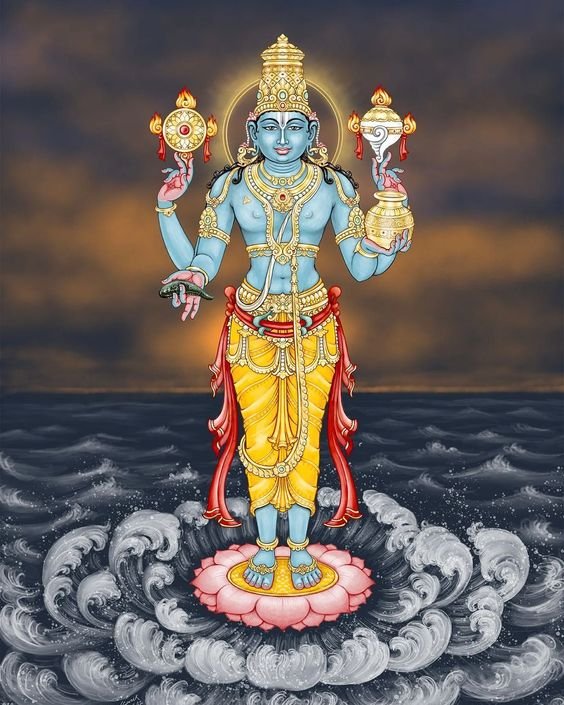
Conclusion
Dhanvantari is one of the most revered figures in Hindu mythology, and his meaning is synonymous with health, healing, and general well-being. His story, born out of the cosmic churning of the milk ocean, personifies values such as cooperation, sacrifice, and pursuit of knowledge. Being the god of Ayurveda, Dhanvantari’s principles inspire individuals to strive for a balance between health and spirituality.
The celebration of Dhanvantari, especially on the occasion of Dhanteras, is the reflection of the importance of health and prosperity in the Hindu religion. His influence is felt in all different regions of India through devotees who pay him respect through rituals, offerings, and prayers.
It is, therefore, his legacy that inspires people to seek as much of traditional medicine and holistic health in modern life, as his influence says with each passing Dhanteras and the eternal values of Ayurveda.
